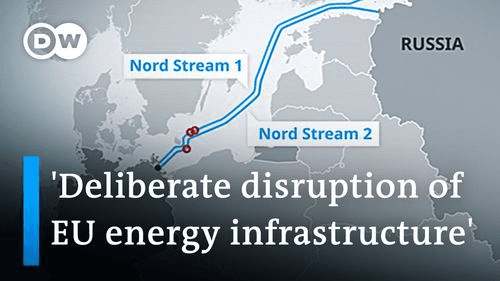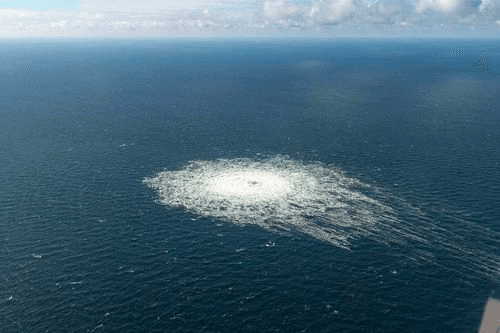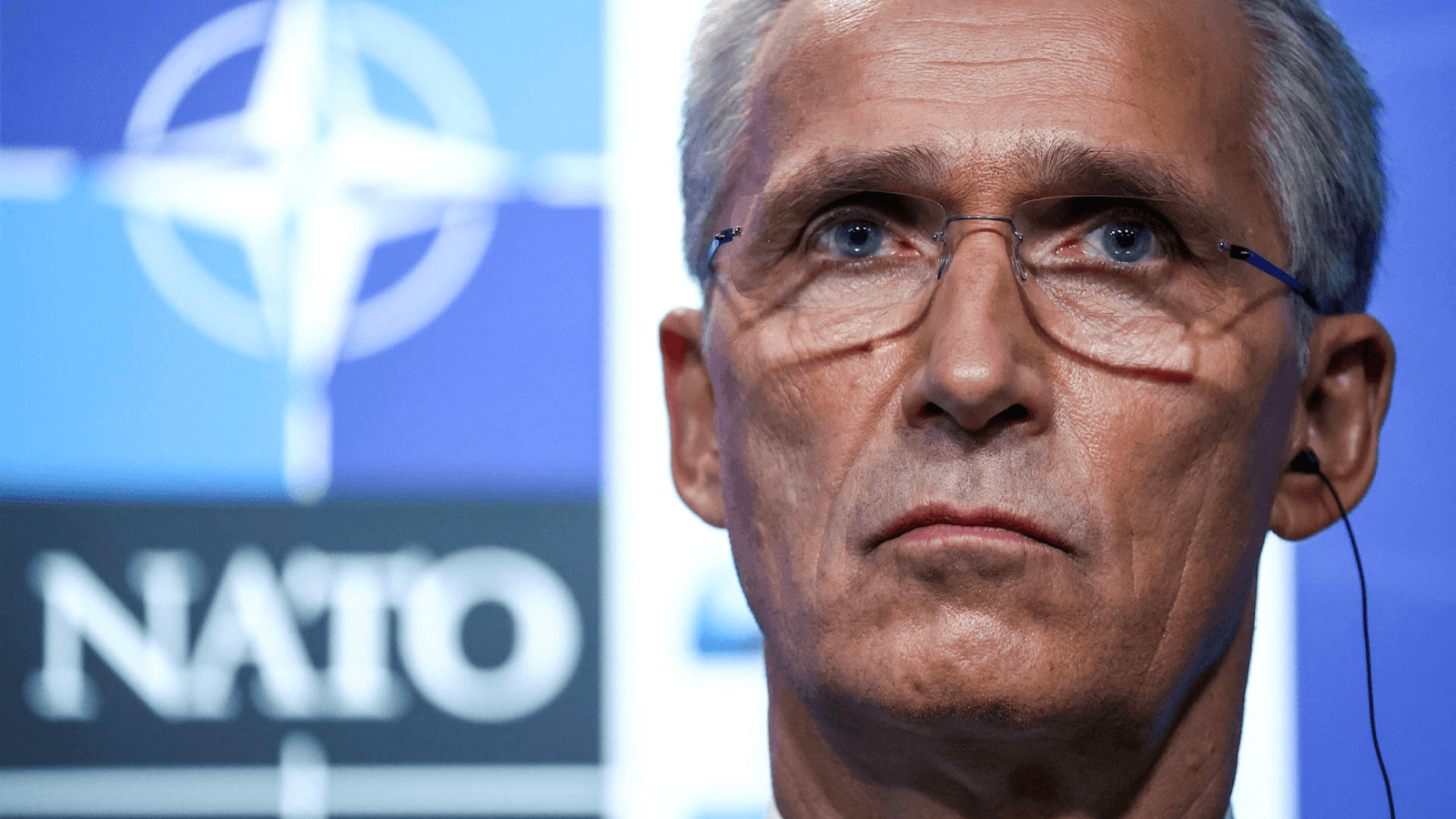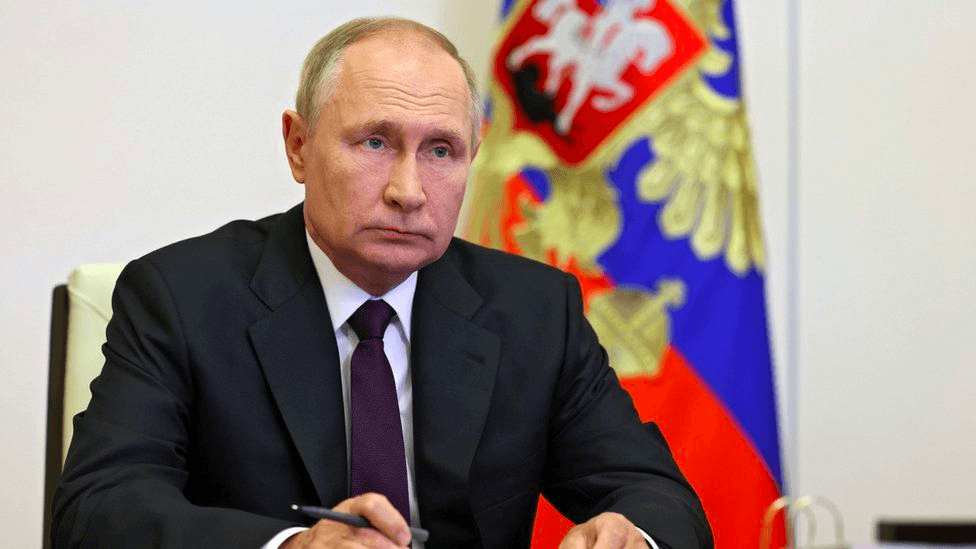Classroom Content

Potential sabotage: What’s behind the Nord Stream pipeline leaks?
- Video •
- 8/27/2022
European officials have revealed leaks in the Nord Stream pipelines between Russia and Europe, with many authorities suspecting sabotage.
 Forbes
ForbesNord Stream Leaks. Over the past week, European officials have revealed four leaks in the Nord Stream pipelines that deliver energy exports from Russia to Germany under the Baltic Sea. Most countries now believe the leaks resulted from sabotage. Swedish authorities’ announcement that they detected two potential explosions in the area before the mysterious leaks lent further credence to this theory. While the affected portions of the pipe are in international waters, they lie within Sweden and Denmark’s exclusive economic zones — parts of the ocean beyond a country’s territorial waters where they maintain authority over natural resources under international law.
While the lines are not currently operational, they are filled with gas. As such, authorities suspect the leaks will last for at least a week. Swedish and Danish authorities have warned ships not to sail near the area, concerned that the boats could sink or even ignite leaked gas. Analysts say repairs could take months. Some German officials have even suggested the pipelines may be permanently damaged, but Russian authorities insist they are repairable.
Russian Energy Exports. The Nord Stream pipelines are a source of immense controversy as tensions between Russia and Europe increase over the continent’s energy supply. Many European countries accuse Russia of weaponizing its gas exports in the wake of its invasion of Ukraine. Nord Stream 1, a branch of the lines, supplied a significant portion of Germany’s gas before the war. However, over the summer, Gazprom — Russia’s state-owned gas giant — announced sporadic pauses in gas flows to Europe, citing maintenance issues. Earlier this month, it halted shipments “indefinitely,” saying sanctions prevented them from carrying out necessary maintenance. Nord Stream 2, a controversial second line in the system, never officially opened as Germany refused to certify it for commercial operations due to the Russian invasion.

Europe Diversifies. Many fear an imminent energy crisis in Europe. European leaders have rushed to diversify and obtain energy from non-Russian sources. The leaks came to light one day before the opening of a Baltic pipeline from Norway to Poland, a development many Western officials have hailed as a significant step toward reducing Europe’s reliance on Russian energy. Some observers believe that Russian President Vladimir Putin hopes to pressure European countries to lift sanctions in exchange for relief as the continent braces for a harsh winter on a dwindling energy supply. That strategy may be paying off, as some leaders have suggested easing the punishments, such as Hungarian Prime Minister Viktor Orban.
West Beefs Up Security. The European Union and NATO believe the leaks resulted from deliberate action and have vowed a collective response against the perpetrators. Following the leaks, many European countries say they will ramp up security around their energy installations. Norway — now Europe’s largest gas supplier — will deploy the military to protect vital energy infrastructure. The United States has said it will work with its European allies to safeguard their energy security.

Russian Concern. Russia also says it is “extremely concerned” about the leaks. The Kremlin says it has launched an investigation into the damage, suspecting “international terrorism.” Further, Russia has called for an emergency meeting of the United Nations Security Council to discuss the leaks.
Russian Escalation? While the culprit of the suspected sabotage is unclear, the technology and coordination required to blow the pipe suggest at least some level of state involvement. Many in the West claim Russia is responsible. According to reports, several military officials say Russian ships were near the site of the incident around when the suspected explosions occurred. Sabotaging the lines could be part of its strategy to increase fear among European countries about their energy security, potentially pressuring them to ease sanctions. Others have theorized the Russians could have blown the pipe as a “false flag,” destabilizing markets and forcing gas prices higher.
Yet some question why the Russians would sabotage a pipeline they helped build at great expense, one central to their energy pressure campaign against Europe.

Covert American Action? Russia has flatly denied accusations it was involved in the leaks, suggesting that the U.S. may be the perpetrator. They say the U.S. conducted naval operations in the Baltic Sea earlier this month and claim America has a lot to gain by effectively preventing Russian exports from reaching Europe. Before Russia’s invasion, President Biden pledged to “end” the Nord Stream 2 project if the Russians moved forces into Ukraine. A clip of these comments has resurfaced following the leaks, with some suggesting it indicates an American willingness to sabotage the pipes.
Others counter that the President meant that his administration would pressure Germany to cancel it — which it did — so physically sabotaging it seems overkill. Additionally, unilaterally disrupting energy flows would surely risk serious blowback, potentially alienating the United States’ most crucial allies at the worst possible moment.
Ultimately, we don’t know who is responsible for the leaks — and perhaps we never definitively will.
Connect this story to the curriculum you're already using. Are you using this differently in your class? Send us an email at team@civilmedia.io, and we'll add a connection here.
